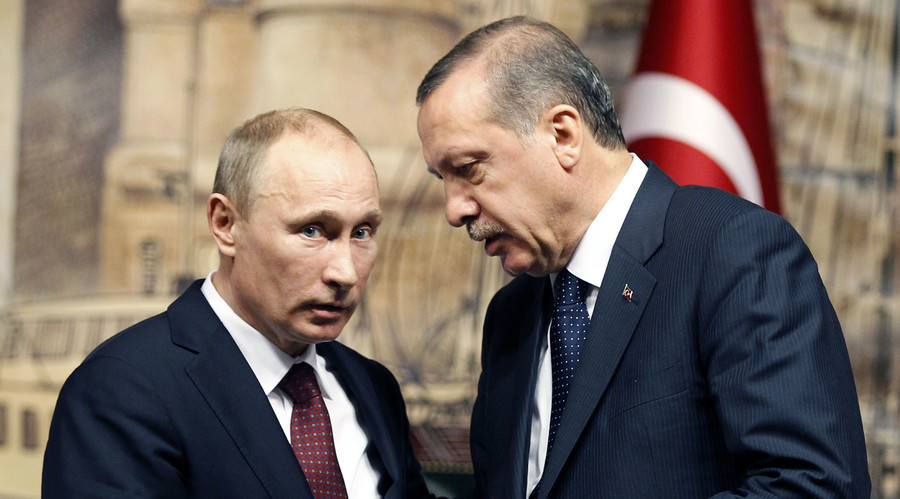
Nearly four weeks after the failed coup d’état in Turkey, President Erdogan has undertaken his first foreign visit for a meeting with the Russian leader, Vladimir Putin. Both heads of state sought to put an end to the deep rift that erupted in November when Turkish forces shot down a Russian jet – fighting in Syria – after it strayed into Turkish airspace. The incident led not only to a freeze in diplomatic relations; it has also had a devastating effect on Turkey’s economy after sanctions from the Kremlin saw a 90 percent decrease in Russian tourism to the country and hammered Ankara’s agricultural exports, to give but two examples. These developments help explain the Turkish premier’s public apology to the Kremlin in June – he was left with no other option.
Against this backdrop, yesterday’s meeting between Putin and Erdogan takes on a much greater geopolitical importance. Firstly, it represents one in the eye for the West – that is, the EU and the U.S. – in a moment of heightened tension. The Turkish president believes neither Washington nor the European governments showed his regime sufficient support during the coup that attempted to topple him from power. On top of this, Erdogan’s denouncement of the U.S. for, as he sees it, harboring the cleric Fetulah Gülen, who he believes is directly behind the coup, has led to a breakdown in relations with the White House. The immense purge that has affected tens of thousands of Turkish civil servants and the many arbitrary detentions that have been seen since the day of the attempt, on top of the country’s systematic violation of human rights and harassment of the press, have further strained relations between Ankara and the EU, even though the latter has only quietly voiced its concerns over Erdogan’s drift toward authoritarianism.
It is in this atmosphere that the Turkish government is seeking new allies. Although it is not currently in a position to undertake a radical realignment of its foreign policy, it does aim to make clear to its NATO allies that it will not permit even the slightest criticism of its politics. To this end, moving closer to Russia is the perfect move, given that the country is reliving the Cold War with the sanctions imposed on it following the intervention in Ukraine and the illegal annexing of Crimea.
In short, Erdogan’s moves are a genuine attempt to provoke Europe. He is taking advantage of the fact that the 28 member states feel as though their hands are tied, given that their agreement with Ankara to try and stem the flow of migrants is currently the only measure for tackling the refugee crisis – the greatest challenge currently faced by the European project – that Brussels has been able to reach an agreement on. It is disheartening to see political paralysis preventing the EU from giving a more satisfactory response to this humanitarian tragedy, and to see the bloc bow daily to Turkey’s blackmail and warnings that it will renege on the agreement if anyone dares to criticize the way it is riding roughshod over democracy.
There is a further key aspect to the warming of relations between Moscow and Ankara, who are thus far light-years apart over the Syrian civil war. Russia is the Assad regime’s principal backer while Turkey desires its downfall. If Putin manages, as is his aim, to win Erdogan over to his Middle Eastern strategy, the survival of the Damascus regime will be ensured. This would be another great blow to the U.S. and the EU, who appear to hold less and less sway in the conflict that is sending shock waves across the world.

Leave a Reply
You must be logged in to post a comment.